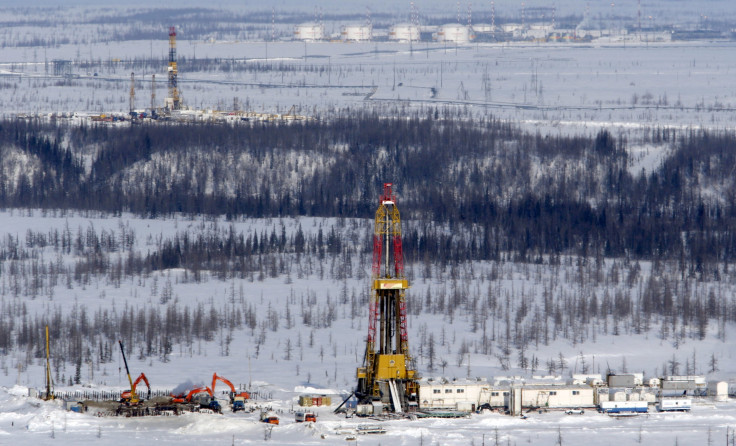Russian Military Arctic Exercises: Defensive Practice To Protect Drilling Sites

As Russia looks to expand its Arctic drilling capabilities, Moscow has begun military exercises in the region, which contains vast amounts of wealth in the form of hydrocarbons and minerals. As of Monday, Russia has some 1,000 soldiers, 14 aircraft and 34 special military units conducting drills in northern Siberia.
The military drills come weeks after Russia pushed the United Nations to recognize its claim on 1.2 million square kilometers, or about 463,000 square miles, of Arctic shelf, according to Defense News. The exercises, according to the Kremlin, are intended as purely defensive maneuvers and not meant to be a threat to international interests outside of Russian borders.
"These drills are aimed at increasing the security of the Russian Arctic, ensuring our state's economic freedom in this region, and protecting our territory and targets from potential military threats," said Vladimir Korolyov, the commander of Russia's northern naval fleet, according to the defense ministry. He made clear that the military's intentions were "purely defensive in nature."
As the Arctic ice caps have receded, more and more territory that is viable for fuel and mineral drilling has been revealed. Russia has put together an aggressive campaign to grab as many of those resources as possible and had similar military drills in May.
The United States, too, is putting a claim on the region. The Obama administration, in May, gave Royal Dutch Shell conditional approval to begin drilling in the Arctic. The move, although seen as a major win for Royal Dutch Shell, has been protested by environmentalists. The United States formalized that approval last week. Analysts say the Arctic holds more promise than hydrocarbons and minerals: As the caps melt, trade routes have opened up through the waters and tourism is seen as a likely future industry.
Obama will head to Alaska on Aug. 31 to talk about energy policy and climate changes in the Arctic.
© Copyright IBTimes 2025. All rights reserved.






















